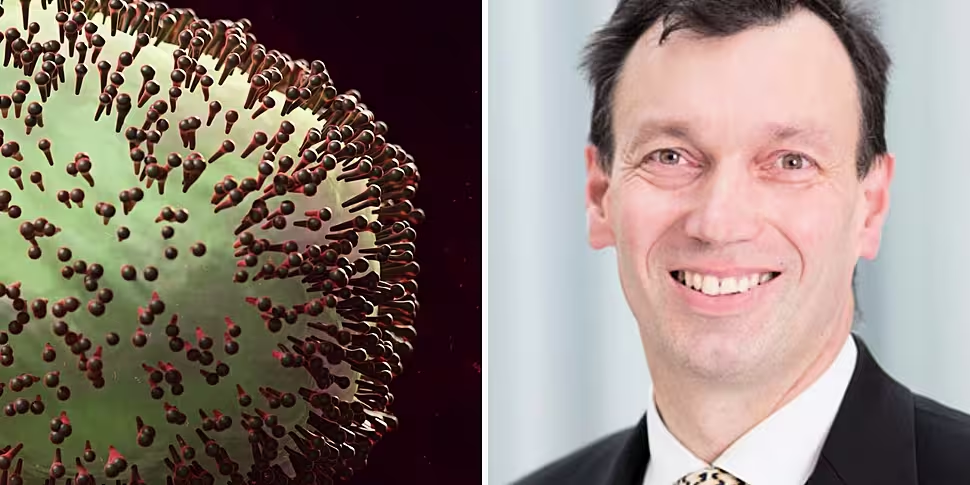It’s really important that we don’t start to “victimise and stigmatise” people who catch monkeypox, according to an infectious disease expert.
The first case of the virus was reported in the east of the country on Friday night.
The HSE said the patient was not hospitalised and noted that the arrival of the virus was “not unexpected” given the detection of cases in Northern Ireland, Britain and Europe.
On Newstalk Breakfast this morning, Infectious Diseases Professor Sam McConkey said the HSE must be prepared to respond to any outbreak – but there is no need for the kind of public health response that was enacted for COVID-19.
“I know a lot of your listeners are going to be thinking oh no, we’ve just been through a horrible two years of COVID, is this all going to happen again, and I would give a resounding no,” he said.
“This is not another pandemic, big epidemic that affects multiple waves of the population. This is completely different.”
Transmission
He said the monkeypox is much less infectious than COVID.
“What we know is that transmission is really skin to skin,” he said.
“So, it is just touching people. Those little water blisters, when they burst open, this juice that comes out of them is very, very infectious to anyone that touches it.
“If it gets into a tiny cut on the person that is touching the juices skin, then they develop the disease.
“It can also be spread by droplets and coughing up close with people. The sort of sneezing droplets we all see coming out of our nose and mouth when we sneeze are again infectious to other people.”
Stigma
Professor McConkey noted that monkeypox patients and close contacts face a three-week isolation period.
He said it is essential that we offer them the same supports that were offered to COVID patients – and urged people not to stigmatise people who gets infected.
“It’s really important that we fight against stigma,” he said.
“It’s possible that when a disease starts in certain groups that people start to victimise and stigmatise them.
“That’s completely unhelpful and in my view, inhumane and wrong. So, we should really be specifically careful not to victimise those who may be in isolation or may have the disease and to fight against stigma.”
Monkeypox
Professor McConkey said the monkeypox virus does not mutate in the same way as COVID so there is no threat of multiple waves – and there are already a number of treatments available.
“There is very good vaccine for it,” he said. “It is already known, it is 85% effective, it is already in production and it has already got EMA approval.
“That can be rolled out to close contacts. If you get the vaccine quickly, it protects the contacts from developing the disease or severe disease and the vaccine of course can be used to prevent healthcare workers and laboratory workers from developing it as well.”
Monkeypox patients will also be asked to isolate from their pets as there are concerns the virus could spread into the animal population.
Here’s everything you need to know about the virus and how to protect yourself.









